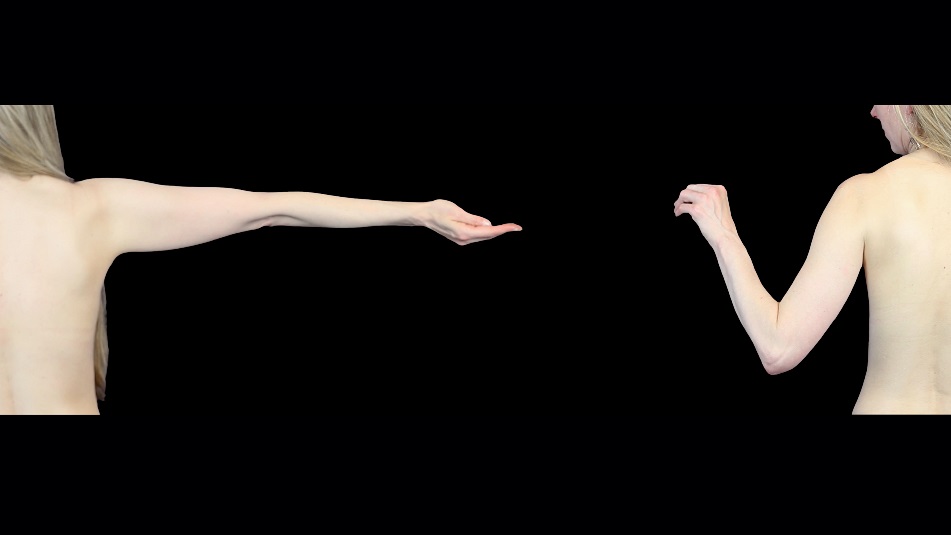An exhibition text commissioned by Centrala, Birmingham to coincide with the opening of Conversio, a new exhibition by Małgorzata Dawidek. My text is going to be translated and published in one of Poland’s leading art and literature magazines also.
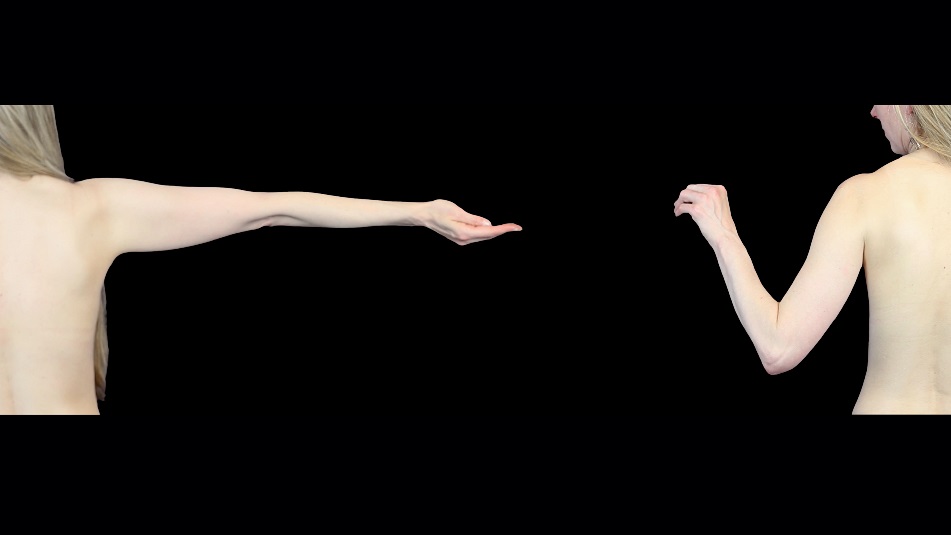
In her text Volatile Bodies: Toward a Corporeal Feminism, the philosopher Elizabeth Grosz notes that the body is a Möbius curve on which culture is tattooed. The lines of the hand, the veins of the eyes, the hairs on the back of the neck contain within them the habitats called ‘home’: a translation of autobiographical experience upon both the interior and exterior of the body.
It is in this intertwining of language, place and the body that the ideas at the core of Małgorzata Dawidek’s practice are located. She describes herself as a nomad. Born in Parczew, Poland, Dawidek has lived in the Polish cities of Poznań and Wrocław, and in New York, Bratislava and Berlin. Based currently in London, the artist has been in residence at Centrala for six weeks working alongside specific groups of female ‘migrants’ now living in Birmingham. The artist’s aim has been to unravel the adaptations, conversions, compromises and opportunities that occur through such migration: how culture, language, behaviour, the idea of home and possibly even the body might alter according to a new geographic location. Previous two-dimensional works, for instance, have explored the phenomenon of ‘Ponglish’, a hybrid language somewhere between Polish and English where nouns and adjectives slip between the two linguistic systems creating new forms of cross-cultural understanding.
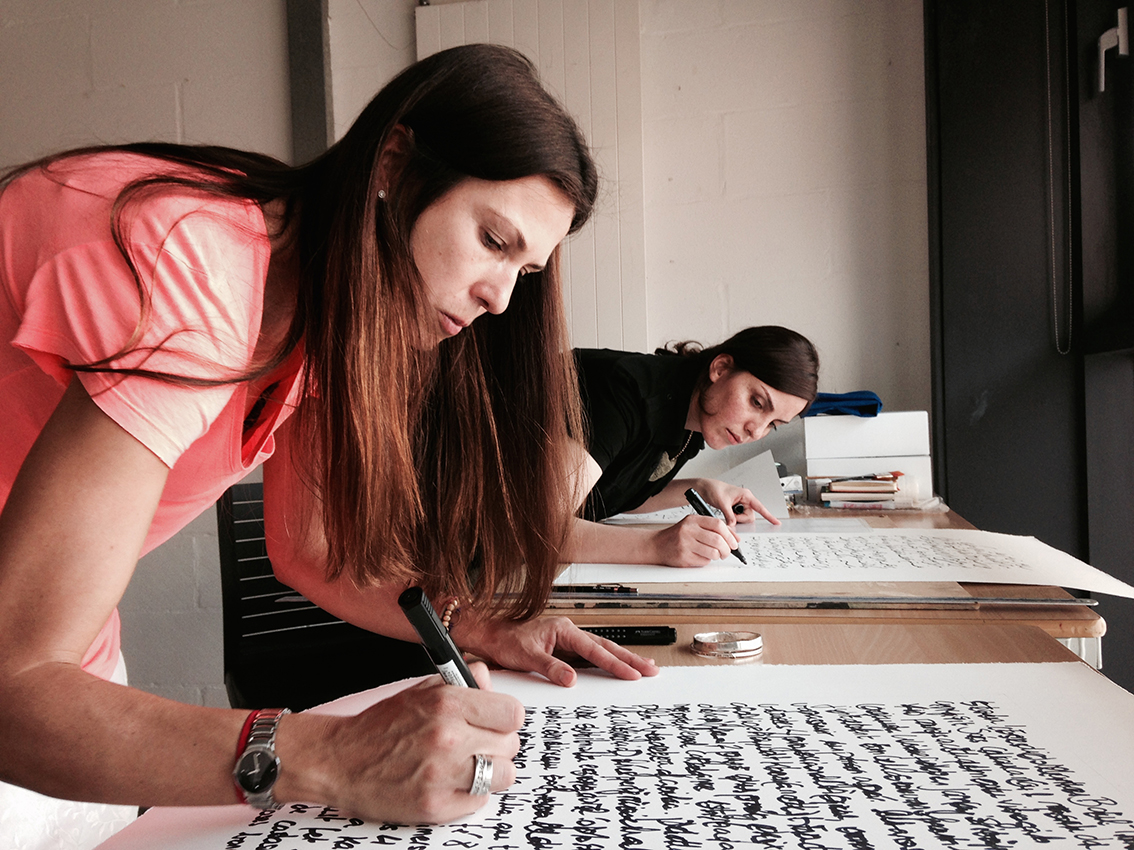
The result of her research at Centrala is Conversio, a politicised project whose ideas began during a residency at The Art House, Wakefield more than a year ago. Conversio is rooted in dialogical exchange between individuals with differing ages, languages, and social and cultural backgrounds. The complexities of uprooting their lives from Uganda, Lithuania, Algeria and Poland and relocating to the UK mean that the thoughts and minds of many of these women remain ‘elsewhere’. During the residency period the artist has facilitated workshops that have been means to begin conversations with these women, allowing each participant to visually depict, write or speak their unique personal stories of migration, as well as their needs, concerns and anxieties. Exhibited for the first time, this output has been developed into new works by Dawidek and includes a series of eight text-based graphic prints taken directly from the stories of workshop attendees, two films and one animated film. Two new photographic works which form part of an ongoing investigation into the idea of home have also been produced.

Language systems are vital to the understanding of the artist’s practice. Language is not only a communication tool but a cultural signifier, a reminder of home and a game with which to play. The sixteen photographs within the Habitats series, for example, depict the temporary construction of single letters of the alphabet in several of Dawidek’s former homes. Assembled from books, lights, scraps of wood and canvas, tape and clothing in attics, bedrooms and kitchens, these cyphers chart something of her own international migration as she repeatedly carves out new homes for herself. Two of these photographs have been made while living temporarily here in Birmingham. Her possessions make a fleeting mark within each space while alluding to or signifying the absent body. This winding migration journey, interspersed with pauses of variable lengths, has been mapped and demarcated by a very fragile kind of language, a system akin to geographical co-ordinates. Taking into account Roland Barthes’ musings in The Pleasure of the Text, Dawidek’s sculptural letters signal a state of ownership and of loss as she leaves one place behind for another. The letters are dis/comforting to read. Following Barthes, the letters both celebrate and destroy something of the culture from which they arise through their ambiguity. The coding system is highly idiosyncratic and confers further layers of meaning upon these numerous places significant to the artist.
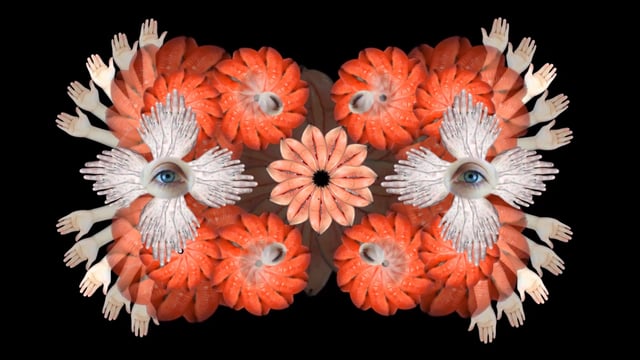
The body is our most direct interface with the world. It is apt to describe an artist’s practice as a ‘body’ of work, for the production of art is a reaction to the world made by and through the corporeal self. Dawidek’s newly developed animation features mouths, eyes, hands and other isolated parts of the body. These motifs multiply and grow, organically forming intricate patterns, circling back on themselves like Grosz’s Möbius body and obscuring the layers beneath. Patterns in the animated film are also taken from the distinctive architectural patterning on the new Library of Birmingham’s exterior façades, drawing together, again, space and the body. Accompanied by the multiple and multi-lingual voices of the women she has been working with, the animated film forms visual and auditory layers of narrative, kaleidoscopically moving and endlessly looping. The film Sylwia includes close-ups of the woman’s skin in an intimate and highly individual portrait. More politically, Sylwia, along with other of Dawidek’s pieces mark out a sense of common ground between each of us: not ‘migrants’ but simply ‘people’.
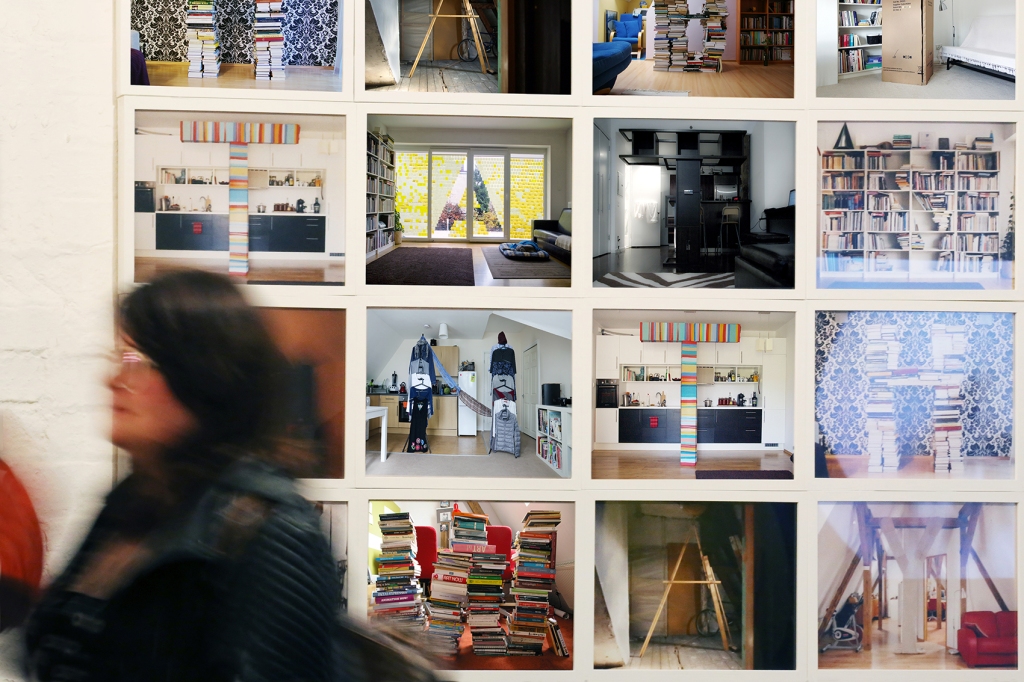
The value of the individual within Conversio is set in stark contrast to the portrayal of migrant communities who are described with increasing hatred in the UK media as ‘dangerous’ to ‘native’ populations. The voices of migrants and the voices of women are too often silenced. By uncovering aspects of social adaption and conversion to and through new cultures via this new body of work, the voices of a small section of this population of Birmingham can be heard, perhaps for the first time. The potential for mutual dialogue, cultural education and collaboration that such work offers in these most difficult of political conditions cannot be underestimated.
The exhibition runs until mid-October 2015 at Centrala, Digbeth, Birmingham.
Text commissioned by Centrala, August 2015.
